Partner with us
For more information:
Ashwini Sinha
E: ashwini@cmsindia.org
M: 98990 46542
For more information:
Ashwini Sinha
E: ashwini@cmsindia.org
M: 98990 46542
The Ministry of Environment and Forests (MoEF) is the nodal agency in the administrative structure of the Central Government for the planning, promotion, co-ordination and overseeing the implementation of India's environmental and forestry policies and programmes.
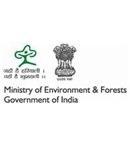
The primary concerns of the Ministry are implementation of policies and programmes relating to conservation of the country's natural resources including its lakes and rivers, its biodiversity, forests and wildlife, ensuring the welfare of animals, and the prevention and abatement of pollution. While implementing these policies and programmes, the Ministry is guided by the principle of sustainable development and enhancement of human well-being.
The Ministry also serves as the nodal agency in the country for the United Nations Environment Programme (UNEP), South Asia Co-operative Environment Programme (SACEP), International Centre for Integrated Mountain Development (ICIMOD) and for the follow-up of the United Nations Conference on Environment and Development (UNCED). The Ministry is also entrusted with issues relating to multilateral bodies such as the Commission on Sustainable Development (CSD), Global Environment Facility (GEF) and of regional bodies like Economic and Social Council for Asia and Pacific (ESCAP) and South Asian Association for Regional Co-operation (SAARC) on matters pertaining to the environment.
These objectives are well supported by a set of legislative and regulatory measures, aimed at the preservation, conservation and protection of the environment. Besides the legislative measures, the National Conservation Strategy and Policy Statement on Environment and Development, 1992; National Forest Policy, 1988; Policy Statement on Abatement of Pollution, 1992; and the National Environment Policy, 2006 also guide the Ministry's work. www.moef.in
The Ministry, is actively associated with CMS VATAVARAN, since its inception in 2002. The Festival acts as a catalyst in taking up multifaceted environmental issues, share available knowledge, highlight the deep interconnectedness between sectors and issues, encourage critical thinking and help shift entrenched attitudes and practices. This festival is thus fulfilling MoEF's one of the important mandate of creating awareness and building networking on conservation issues in the country.
The Royal Norwegian Embassy represents the Government of Norway in India. The Norwegian Embassy's support to the 6th CMS VATAVARAN Environment & Wildlife Film Festival and Forum 2011 reflects Norway's commitment to strengthen, intensify and further develop a mutually beneficial cooperation with India through strategic use of its resources and expertise. As stated in the Norwegian Government's India Strategy, launched in August 2009, Norway re-affirms its commitments to strengthening the dialogue and cooperation with India on sustainable solutions to national and global environmental and climate issues.
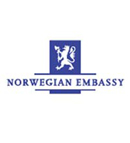
The Royal Norwegian Embassy in New Delhi has been mandated by the Norwegian Government to promote cooperation with India on environment and climate change at government level, between institutions and business-to-business. Building partnerships, between our countries, and across sectors, is a guiding principle of the work the Embassy is doing. The Joint Commission at the Foreign Ministers' level was established in 2005, followed by setting up of various inter-ministerial Joint Working Groups notably in culture, science and technology, hydrocarbons, education and environment.
The Embassy is proud to be a facilitator of project cooperation between some of the most prominent institutions and centres of excellence in India and Norway on issues of mutual interest and benefit, like joint research projects related to energy, climate change and the environment. We strive to build public-private partnerships in order to achieve our common goals.
For more information about Norway and the Royal Norwegian Embassy, please visit www.norwayemb.org.in
India's Approach Paper to 12th Five Year Plan (2012-17) aims at achieving "faster, sustainable and more inclusive growth". While setting an ambitious economic growth target at 9 percent per annum during 2012-17, the Approach Paper also notes that "economic development will be sustainable only if it is pursued in a manner which protects the environment". With acceleration of economic and population growth and extreme poverty, there is a need for greater attention to the management of water, forests and land in order to mitigate pressure on natural resources. The emerging challenge of climate change is another major threat to environmental resources and thus posing a new challenge to sustainable development.

The Government of India emphasises the importance of integrating and mainstreaming natural resource and environmental management concerns into all development activities. Priority areas are livelihood security for the poor, inter-and intra-generational equity, integration of environmental concerns in economic and social development, use of economic principles in environmental decision making for efficient resource use, good governance, and increased investment in environmental conservation. Conservation and sustainable use of biodiversity to enhance livelihood security, promotion and valuation of biodiversity and ecosystem services in the national planning process including study of the economics of ecosystems and biodiversity are other focus areas.
The Indo-German development cooperation works towards enhancing the environmental resource base through innovative approaches, and address the risks posed by climate change. GIZ supports the policies of the government in this sector by strengthening India's own development efforts with a view to achieve the national development objectives, the Millennium Development Goals (MDGs), and implementation of international environmental conventions.
GIZ engages stakeholders at different levels to facilitate change and empower implementing partners. Partner orientation combined with a wealth of regional and technical competence and established management expertise allow for the application of not only for technical solutions but also for institutional and structural solutions. This unique position has allowed GIZ to be the first international development agency to work on climate change adaptation in rural areas of India.
The programme supports partners at the national and state levels for designing innovative financing approaches for sustainable natural resource management, improving the efficiency and effectiveness of public and private investments in agriculture and natural resources sector, and finding appropriate solutions for adaptation to climate change. www.giz.de/en
Zee News' 'My Earth My Duty' campaign, launched on June 5, 2010 in association Nehru Yuva Kendra Sangathan(NYKS) is a social initiative with an objective to spread awareness on climate change. The initiative aims at engaging various members of the society to sensitize and encourage them to take concrete action towards mitigating the effects of climate change. The campaign reached out to a whopping 50 million youngsters last year and entered Limca Book of Records 2010-2011for setting a record of planting more than 73 lac trees in one single day(25th August 2010) across 2.5 lac villages and all the District Head Quarters. The achievement not only made it Nation's largest climate change awareness drive but also won it the prestigious Rashtriya Rajiv Gandhi Award.

This year, Zee News once again rolled out the campaign on World Environment Day (June 5, 2011) with NYKS having the same objective of motivating people to bring about behavioral change to fight the menace of the global warming and environmental degradation and most importantly the role that each one of us can play in saving our Mother Earth. The logo, which encapsulates Mother Earth with a green cover, aims to communicate to every individual his duty towards the planet for our future generations.
Spread over a period of three months, the campaign is being drawn up as an innovative one from all conceivable aspects and has been designed in such a way that it should reach a sizeable population effectively across the nation in various languages like Hindi, Marathi, Gujarati, Bengali and others.
IndianOil is India's flagship national oil company with business interests straddling the entire hydrocarbon value chain from refining, pipeline transportation and marketing of petroleum products to exploration & production of crude oil & gas, marketing of natural gas and petrochemicals. It is the leading Indian corporate in the Fortune 'Global 500' listing, ranked at the 98th position in the year 2011.
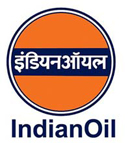
With over 34,000-strong workforce, IndianOil has been helping to meet India's energy demands for over half a century. With a corporate vision to be the Energy of India, IndianOil closed the year 2010-11 with a sales turnover of Rs. 3,28,744 crore ($ 72,125 million) and profits of Rs. 7445 crore ($ 1,633 million).
At Indian Oil, operations are strategically structured along business verticals Refineries, Pipelines, Marketing, R&D Centre and Business Development E&P, Petrochemicals and Natural Gas. To achieve the next level of growth, IndianOil is currently forging ahead on a well laid-out road map through vertical integration upstream into oil exploration & production (E&P) and downstream into petrochemicals and diversification into natural gas marketing and alternative energy, besides globalisation of its downstream operations. Having set up subsidiaries in Sri Lanka, Mauritius and the United Arab Emirates (UAE), IndianOil is simultaneously scouting for new business opportunities in the energy markets of Asia and Africa. www.iocl.com
Doordarshan, the public service broadcaster, is the largest terrestrial network in the world. The service started on September 15, 1959, to transmit educational and developmental programmes on an experimental basis. Doordarshan has made significant contribution to accelerate socio-economic change, promote national integration and stimulate scientific temper. Being a public service broadcaster, it strives to carry socially relevant messages in its programme content. Doordarshan has a three-tier programme service National, Regional and Local. The emphasis in the National programmes is on events and issues of interest to the entire nation. These programmes include news and current affairs, magazine programmes and documentaries on science, art and culture, environment, social issues, serials, music, dance, drama and feature films. The regional programmes cater to the interests of a particular state, in the language and idiom of that region. The local programmes are area specific and cover local issues featuring local people.
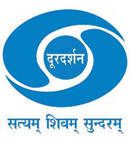
DD's national programmes inculcate a sense of unity and fraternity with its healthy mix of entertainment, information and education. All major national events as well as educational programmes and issues related to women, tribal affairs and other public service programmes are broadcast on regular basis. Prasar Bharati has entered into a partnership with the Public Service Broadcasting Trust (PSBT) to source quality documentaries on various issues of concern to the public. Prasar Bharati also participates actively in the annual documentary film festival Open Frame. Doordarshan opened its windows to the world by launching its international channel on 14th March, 1995. The Channel, earlier known as DD World was renamed DD India in 2002. The programming offers international viewers an update on the Indian social, cultural, political and economic scene. DD India was launched with a mission "to build bridges of communication with Indians living abroad and to showcase the real India, its culture, its values, its traditions, its modernity, its diversity, its unity, its agony and its ecstasy to the entire world through programmes of high quality, that will inform, educate and entertain people in the highest traditions of public service broadcasting." DD India can be watched in 146 countries across the world through PAS-9 and PAS-10 satellites. It carries news bulletins, features on topical events, entertainment programmes, feature films, music and dance, children programmes, events and tourism. In addition to Hindi and English, programmes in Urdu, Punjabi, Telugu, Tamil, Kannada, Malayalam, Gujarati and Marathi form an essential ingredient of this international channel's offering.
Doordarshan is the only television network in the country which has diverse programming on family welfare, women, children and the less privileged. It also beams programmes on agricultural information and knowledge, preservation of environment and ecological issues. Since VATAVARAN 2002, Doordarshan has been providing consistent support in promoting the festival across India. www.ddindia.gov.in
A Glorious Past - A Brighter Future
Union Bank of India was established on 11th November 1919 with its headquarters in the city of Bombay now known as Mumbai. The Head Office building of the Bank in Mumbai was inaugurated by Mahatma Gandhi, the Father of the nation in the year 1921, and he said on the occasion: "We should have the ability to carry on a big bank, to manage efficiently crores of rupees in the course of our national activities. Though we have not many banks amongst us, it does not follow that we are not capable of efficiently managing crores and tens of crores of rupees."
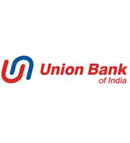
His prescient words anticipated the growth of the bank that has taken place in the decades that followed. The Bank now operates through over 2800 branches across the country. The Bank's core values of prudent management without ignoring opportunities is reflected in the fact that the Bank has shown uninterrupted profit during all 90 years of its operations.
Union Bank has been playing a very proactive role in the economic growth of India and it extends credit for the requirements of different sectors of economy. Industries, exports, trading, agriculture, infrastructure and the individual segments are sectors in which the bank has deployed credit to spur economic growth and to earn from a well diversified portfolio of assets. Resources are mobilised through Current, Savings and Term Deposits and through refinance and borrowings from abroad. The Bank has a large clientele base of over 24 million.
On the technology front the Bank has taken early initiatives and 100% of its branches are computerised. The Bank has also introduced Core Banking Solution with connectivity between branches. 100% of the business of the Bank is under Core Banking Solution making it a leader among its peers in infusion of technology. Many innovative products are developed using the technology platform to offer an array of choices to customers, adding speed and convenience to transactions. Technology will also enable the Bank to derive substantial cost reduction while creating the requisite capacity to handle the ever increasing volume of business in a competitive environment that offers immense opportunities. At the end of September 2011 the Bank achieved total business level of INR3,42,856 crore (Rupees Three Lakh Forty two thousand Eight hundred fifty six crore). Behind all these achievements is a dedicated team of staff, which is truly cosmopolitan in its composition. Many generations of members of staff have contributed in building up the strong edifice of the Bank. The present team of over 29000 members of staff distinguishes itself with its customer centricity, willingness to learn and adherence to values enabling us to be recognised as a caring organisation where people enjoy their work and relationship with customers. www.unionbankofindia.co.in
The Essar Foundation seeks to positively impact in the lives of all who come into contact with the group's operations. The 3E framework is a way of focusing efforts and resources. Within that framework Entrepreneurship, Environment & Education, six long-standing programmes exist. They focus on education, health, women's empowerment, livelihood, infrastructure and environment. These programmes have a dual function. Firstly, to create awareness and then to make positive improvements.
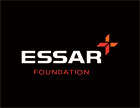
In all the programmes there is a strong element of awareness-raising as a means of empowering individuals and communities. Helping people develop skills is a way of breaking cycles of dependency. This is one way in which CSR investments lead to changed behaviors. There is simultaneously an emphasis on partnering with existing agencies, whether government or non-governmental organisations, rather than creating new initiatives. This means Essar's resources and investments are used to amplify positive impacts.
3Es:
Steel Authority of India Limited (SAIL) is the leading steel-making company in India. It is a fully integrated iron and steel maker, producing both basic and special steels for domestic construction, engineering, power, railway, automotive and defense industries and for sale in export markets. SAIL is also among the five Maharatnas of the country's Central Public Sector Enterprises.
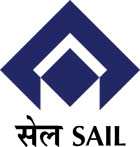
SAIL manufactures and sells a broad range of steel products, including hot and cold rolled sheets and coils, galvanised sheets, electrical sheets, structural, railway products, plates, bars and rods, stainless steel and other alloy steels. SAIL produces iron and steel at five integrated plants and three special steel plants, located principally in the eastern and central regions of India and situated close to domestic sources of raw materials, including the Company's iron ore, limestone and dolomite mines. The company has the distinction of being India's second largest producer of iron ore and of having the country's second largest mines network. This gives SAIL a competitive edge in terms of captive availability of iron ore, limestone, and dolomite which are inputs for steel making.
SAIL's wide range of long and flat steel products are much in demand in the domestic as well as the international market. This vital responsibility is carried out by SAIL's own Central Marketing Organisation (CMO) that transacts business through its network of 37 Branch Sales Offices spread across the four regions, 25 Departmental Warehouses, 42 Consignment Agents and 27 Customer Contact Offices. CMO's domestic marketing effort is supplemented by its ever widening network of rural dealers who meet the demands of the smallest customers in the remotest corners of the country. With the total number of dealers over 2000, SAIL's wide marketing spread ensures availability of quality steel in virtually all the districts of the country.
SAIL's International Trade Division (ITD), in New Delhi- an ISO 9001:2000 accredited unit of CMO, undertakes exports of Mild Steel products and Pig Iron from SAIL's five integrated steel plants. With technical and managerial expertise and know-how in steel making gained over four decades, SAIL's Consultancy Division (SAILCON) at New Delhi offers services and consultancy to clients world-wide.
SAIL has a well-equipped Research and Development Centre for Iron and Steel (RDCIS) at Ranchi which helps to produce quality steel and develop new technologies for the steel industry. Besides, SAIL has its own in-house Centre for Engineering and Technology (CET), Management Training Institute (MTI) and Safety Organisation at Ranchi. Our captive mines are under the control of the Raw Materials Division in Kolkata. The Environment Management Division and Growth Division of SAIL operate from their headquarters in Kolkata. Almost all our plants and major units are ISO Certified. www.sail.co.in
HPCL is a Government of India Enterprise with a Navratna Status, and a Fortune 500 and Forbes 2000 company, with an annual turnover of Rs. 1,32,670 Crores and sales/income from operations of Rs 1,43,396 Crores (US$ 31,546 Millions) during FY 2010-11, having about 20% Marketing share in India among PSUs and a strong market infrastructure. HPCL's Crude Thruput and Market Sales (including exports) are 14.75 Million Metric Tonnes (MMT) and 27.03 MMT respectively in the same period.

HPCL operates 2 major refineries producing a wide variety of petroleum fuels & specialties, one in Mumbai (West Coast) of 6.5 Million Metric Tonnes Per Annum (MMTPA) capacity and the other in Vishakapatnam, (East Coast) with a capacity of 8.3 MMTPA. HPCL holds an equity stake of 16.95% in Mangalore Refinery & Petrochemicals Limited, a state-of-the-art refinery at Mangalore with a capacity of 9 MMTPA. In addition, HPCL is constructing a 9 MMTPA refinery at Bathinda, in the state of Punjab, as a Joint venture with Mittal Energy Investments Private Ltd.
HPCL also owns and operates the largest Lube Refinery in the India producing Lube Base Oils of international standards, with a capacity of 335 TMT. This Lube Refinery accounts for over 40% of the India's total Lube Base Oil production.
HPCL's vast marketing network consists of 13 Zonal offices in major cities and 101 Regional Offices facilitated by a Supply & Distribution infrastructure comprising Terminals, Pipeline networks, Aviation Service Stations, LPG Bottling Plants, Inland Relay Depots & Retail Outlets, Lube and LPG Distributorships. HPCL, over the years, has moved from strength to strength on all fronts. The refining capacity steadily increased from 5.5 MMTPA in 1984/85 to 14.8 MMTPA presently. On the financial front, the turnover has grown from Rs. 2687 Crores in 1984-85 to an impressive Rs 1,32,670 Crores in FY 2010-11.www.hindustanpetroleum.com
Birla Edutech Limited has embarked on a journey to revolutionise education in India. Its vision is to bring back creativity and the joy of learning to schools & nurture sensitivity towards the Society, economy & Environment. It promises to build a uniting culture, provide rich education and develop a strong sense of community through each of its multifaceted institutions. Dedicated to finding novel solutions to the greatest challenges of the day, it aims to prepare students for global leadership in today's complex world. Birla Edutech Limited has already successfully entered the pre-school category with Globetot'ers, a one of a kind eco-friendly pre-school, currently operational in Mumbai, Hyderabad, Patna and will gradually expand to other parts of India.
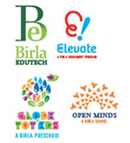
Birla Edutech Limited is also setting up Open Minds K-12 Schools and Super Specialty Colleges across the length and breadth of the country as it believes in providing an ever relevant, world class and seamless education right from preschool to the workplace. www.birlaedutech.com
The Netherlands has an open and internationally-oriented economy. The longstanding business relationship between India and The Netherlands has intensified significantly over the years. The Embassy's endeavour is to increase Indo-Dutch cooperation in many fields, but mainly in trade, investments and Science and Technology.
Historical relations between India and The Netherlands started with the Dutch East Indian Company (VOC) more then 400 years ago. Today, the total volume of two way trade between India and The Netherlands is around 3 billion US$ but growth figures are impressive.
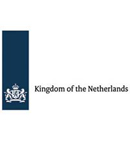
Cooperation in the cultural field is also not of any less importance: In November 2008 Amsterdam had organized a month-long India Festival portraying the broad spectrum of the Indian culture. Also, The Netherlands was a partner country in the Design Yatra in Mumbai in early September 2009. More information can be obtained from:www.hollandinindia.org
Panos South Asia has its headquarters in Kathmandu (Nepal) with country offices in New Delhi (India), Colombo (Sri Lanka), Karachi (Pakistan), and Dhaka (Bangladesh). The regional office in Kathmandu was established in 1997,the India office in 2000, the Sri Lanka office & the Pakistan office in 2004. The Bangladesh office opened in 2005 as also the North-East project office in Guwahati. We moved south to Chennai in July 2006, to establish our Globalisation Project office.Recent developments include the addition of new programme staff and the creation of a state-of-the-art media centre in Kathmandu.
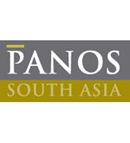

The Gaia People specialises in designing and implementing CSR strategies, employee engagement programmes and communication campaigns for corporates in wildlife sand environment conservation. The premise of their business is that it integrates corporate business goals with environmental conservation through engaging, focused, long-term and result-oriented strategies.The company also designs vacations and volunteer holidays that support communities and conservation.The basis of this project is to promote responsible tourism, wherein the holiday programs are run by local people, thereby creating more jobs and greater income for them and increased benefits for conservation, while minimizing the negative impacts on local environments.
www.facebook.com/pages/The-Gaia-People/165491580180216
Television for Education Asia Pacific, trading as TVE Asia Pacific (abbreviated: TVEAP), is dedicated to communicating sustainable development, humanitarian and social justice issues through the audio-visual and new media.
We are an independent, non-profit media foundation that works journalistically in the public interest. We look at how individuals, communities and countries can make informed choices that affect their lives today and in the future.

Founded in 1996, we have a dozen years' experience in using audio-visual media (television, video and film) and new media (Internet and Web) in developing countries of the Asia Pacific.
We engage in communication for social change by producing and distributing editorially independent TV, video and web content. We also build capacity of TV producers, journalists, film-makers and communities to tell their own stories. www.tveap.org
ITC Hotels is actively committed to the environment. As responsible corporate citizens, we recognise our commitment towards maintaining a greener and healthier environment. WelcomEnviron is our vision for a green world. It's a multi-faceted programme started in order to propagate environmental causes in the cities where ITC Hotels are located. The guiding principle is 'Reduce, Reuse and Recycle'. Each hotel has its own programme, encompassing local participation, creating awareness among employees and internal conservation through energy-saving gadgets and environment-friendly material. Our guests are also encouraged to be a part of our campaign, 'Give back as much as you take from the environment'. Awards

The Department of Environment has been assigned responsibility of improving the overall Environmental Quality in Delhi. The Department is actively engaged in overall environmental assessment, monitoring, protection and awareness rising among the people of Delhi. Multi-dimensional approach is being adopted by the Department for promotion, conservation and preservation of Environment. The activities of Department of Environment are:
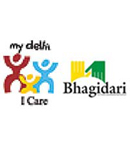
www.environment.delhigovt.nic.in
The National Science Centre, Delhi is a unit of the National Council of Science Museums (NCSM), which is an autonomous body under the Ministry of Culture of the Government of India. It is a pioneering institute engaged in the popularisation of science among the people of the northern part of India in general and among the students in particular. It was inaugurated on the 9th of January 1992 by the then Prime Minister of India. Since opening, the Centre has rendered yeoman service to the cause of science popularisation
Objectives
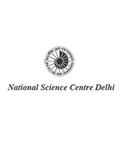
The Norwegian Film Institute operates under the auspices of The Royal Norwegian Ministry for Culture and is the government's civil executive body for the film sector and its advisor in questions of film policy. Through Regulations delivered by the Ministry and its general mandate the NFI is charged with putting the government's film policy into practice.
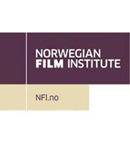
The NFI provides support for Norwegian Films, televisions series and electronic games, and organises training and talent development in the sector. The Film Institute represents and informs about Norwegian film on the national as well as on the international level. Through www.nfi.no, the Film Museum, and exhibitions in the Film House the NFI protects and disseminates knowledge of and understanding of the Norwegian film heritage.
The Institute is furthermore charged with facilitating and marketing Norway as an attractive shooting location for foreign film producers. The Norwegian Film Institute is located in the Film House in Dronningens gate 16 in downtown Oslo.The Film House is a focal point for the film business, the public and for film administration.
The Institute at present has approximately 100 employees, organised into Departments of Production and Development, and of Promotion, Information, Administration and Audiences. The latter department is in charge of the Cinematheque. The NFI has at its disposal two state-of-the-art cinema theatres, the Tancred and the Lillebil.
The Norwegian Film Institute is a member of the international film archives' organisation FIAF, and of a number of other international bodies and organisations in the film sector, among them the International Council of Educational Media, European Film Academy and Scandinavian Films.
The Film Institute represents Norway in the European co-production fund EURIMAGES and in the European Audiovisual Observatory. www.nfi.no